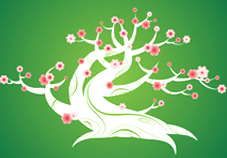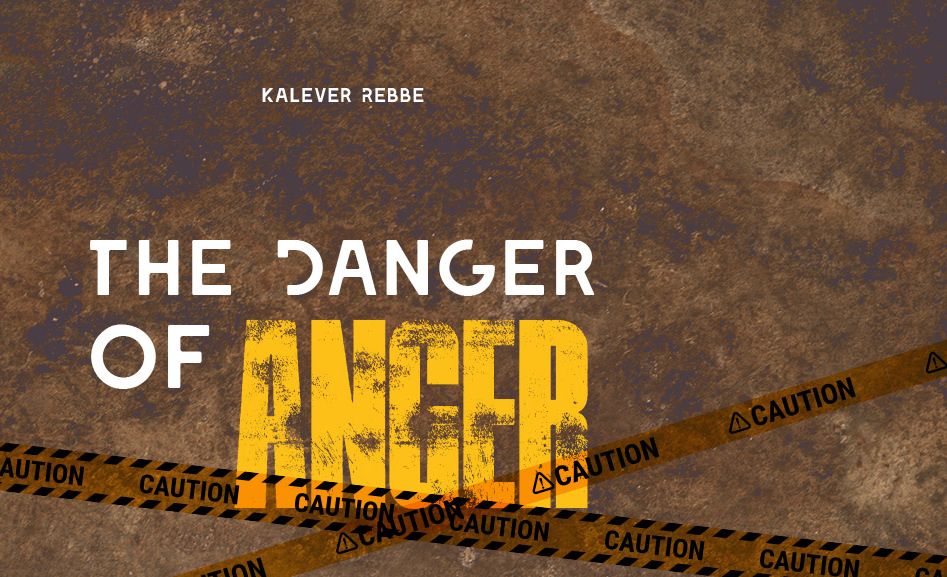
Return to Gan Eden
It may seem unfair that we must all suffer because of the mistake made by world’s first couple; but in all honesty, wouldn’t we have done the same thing?

We all know the story of Adam and Eve. Every child is taught how the snake persuaded Eve to partake of the fruit from the ‘Tree of Knowledge’, the only tree which was off–limits to her and Adam. She then convinced her man to eat the ‘apple’ as well. In simplified terms, this story can be understood by a first-grader as it appears pretty black and white. G-d told them not to eat from that specific tree, the snake pushed Eve to sin and with a little feminine enticement, Adam joined in. The moral of the story is: when rules are broken, there is a price to pay. Adam and Eve (Chava) and all future generations were banished from Gan Eden (the Garden of Eden) and the snake was punished by losing his limbs, being forced to crawl on his belly and eat dust. From that time onward, men would have to earn a living by the ‘sweat of their brow’ and women would suffer pain of childbirth.
How did Hashem enforce this eviction? He placed Cherubim, frightening angels, holding a flaming sword (Bereshit 3:24) at the east entrance of the Garden to prevent them from reaching the Tree of Life (the Tree of Knowledge of good and evil).
We are all Adam and Eve and we continue until this day to pay for their sin.
It may seem unfair that we must all suffer because of the mistake made by world’s first couple; but in all honesty, wouldn’t we have done the same thing? There was no Torah to follow and there were no laws of conduct in place other than what G-d Himself told Adam and Eve. They possessed the purity and innocence of newborn babies. Today, we have an extreme amount of reverence and fear of Hashem which surely they did as well, but to Creation’s first offspring, our Father in Heaven was exactly that… their Father. How often do we (wrongly) disobey our parents despite the commandment to comply with their requests? We should realize that our parents, like HaKadosh Baruch Hu (the Holy One, Blessed be He) only want what is best for us.
Even though our earliest ancestors, Adam and Eve, did not yet have a yetzer hara (evil inclination), the serpent took on that role and incited them to transgress. Imagine then, with our yetzer hara firmly intact and a little nudging, many a woman today would let curiosity get the better of her as well, taking her devoted mate down with her. To give Eve the benefit of the doubt, though, she was not given the edict straight from Hashem as she had not yet been formed when the order was given. The directive must have been passed on to her by her other half. This teaches us a lesson about taking our husband’s instructions seriously. We might not enjoy being dictated to by our spouse, but it is usually in our best interest. It also shows how a man can be easily influenced by his wife, a gift we should only utilize for the good.
According to G-d’s decree, when Adam and Eve ingested the forbidden fruit, it created awareness within them and they suddenly felt shame. From that day forward they understood the concept of right and wrong. With all the Divine traits we have thus inherited, it is now up to us to rectify their primordial sin. While it appears to be a tall order, nothing is impossible with Hashem’s help and our sincere determination.
Adam and Eve, a pair fashioned from one body and one soul, is a perfect template to assist us in our own tikkun (soul correction). No one doubts that Adam and Eve were made for each other or that they were soul mates. She was made from his rib, after all. Why then, when Hashem brings a man and woman together under the Wedding Canopy do we ever doubt that bond? We may not have been physically molded out of our partner’s anatomy, but our sages tell us that we shared a common Neshama (soul) in the Upper Worlds.
Even though Hashem cast Adam and Eve out from Gan Eden, they repented and He continued to bless them. He was an active partner in building their future, OUR future, by granting them a family and strengthening their Shalom Bayit, peace in the home. Similarly, the Almighty blesses the union between a husband and wife with holy progeny and abundance, if they so merit. It is interesting to note the word used when describing the guilty couple’s expulsion from the Garden (Bereshit 3:24); Vayigaresh meaning drove out, contains the word gerush גרש, the word for divorce. Among other things, we can conclude from this that our sins, those commands which we choose to violate, cause us to be ‘driven out’ from receiving Hashem’s bounty. Divorce, unless it is for the sake of Pikuach Nefesh (saving a life), can also distance us, drive us away from our Heavenly Father’s plentiful favors. Thankfully, G-d is compassionate and gives us many opportunities to atone for our weaknesses.
The longed-for sanctity in our lives is best reinforced with emuna and prayer. Serving The Master of the Universe wholeheartedly and heeding His Word will ultimately cleanse us from our predecessors’ wrongdoing. Our efforts can change the world by bringing HaShem’s light into the physical realm through many mitzvot such as Chesed (Kindness) and giving Tzedaka (Charity). But most importantly, our rectification begins at home. We must make use of our heavenly attributes of compassion, understanding, forgiveness, generosity and  love within our family, first and foremost. Righteousness will then overflow like a sweet chocolate fountain to our People and all of Mankind.
love within our family, first and foremost. Righteousness will then overflow like a sweet chocolate fountain to our People and all of Mankind.
It is our obligation to prove to Hashem that we have learned our lesson and that we are ready to return to Gan Eden. If we are deemed worthy of His reward, we will be showered with a new era of peace and joy. When the Cherubim of old which guard the Tree of Life are able to put down their flaming sword, our enemies will finally put down their swords as well. Then we will be free to bask in the magnificence of Paradise for eternity. May it be soon, in our days, amen.







10/23/2022
I want Adam’s original Gan Eden assignment: “…to dress it and to keep it.”